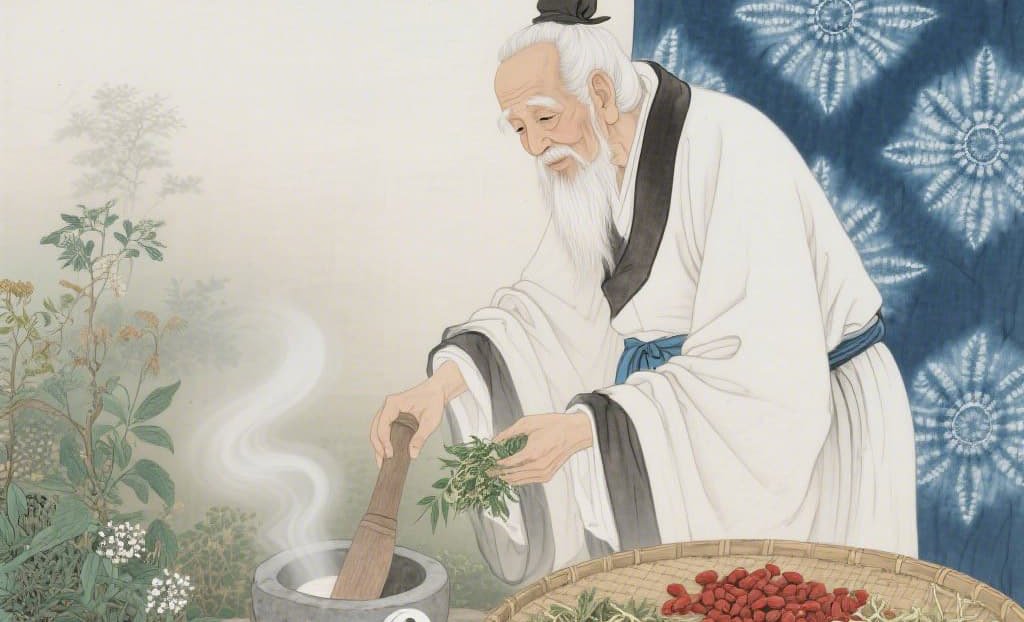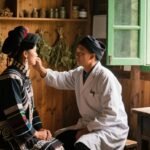Alowu (Postpartum Insufficient Lactation)
Overview
In Miao medicine, postpartum lack of milk is called Alowu (or Mai Alowo). This condition arises when the mother’s constitution is weak and qi-blood deficient—whether due to illness before delivery, excessive exertion, emotional distress, or poor diet—so that after giving birth she produces little or no breast milk. Miao practitioners say “the food nourishes the mother but not the ailment,” meaning a healthy-looking mother may still fail to lactate.
In Traditional Chinese Medicine, insufficient lactation (ru zhi bu zu or ru zhi bu xing) refers to inadequate generation or blocked flow of breast milk during the nursing period. In Western medicine, low milk supply often results from delayed or infrequent breastfeeding, short nursing sessions, stress-induced hormonal imbalance, or lifestyle factors that suppress prolactin secretion.
Huhoujipeng · Miao Disease Classification
Alowu is regarded as a minor disorder and is divided into two subtypes: cold-meridian qi-blood deficiency lactation failure, and heat-meridian lactation failure.

Aiduojiang · Causes
The causes are complex but closely linked to maternal weakness, illness before delivery, irregular diet, emotional upset, and environmental factors.
Gengduomeng · Pathogenesis
A weak postnatal constitution or illness depletes the source of qi and blood; dietary irregularity further injures the spleen and stomach, weakening postnatal generation of qi-blood; overwork or excessive bleeding during delivery exhausts qi and blood, leaving the Chong and Ren vessels unsupported—so milk cannot form or descend. Emotional depression after delivery stirs liver qi stagnation, blocking meridians and preventing milk flow.
Diagnostic Key Points
Diagnostic Basis
(1) Main signs: very little or no breast milk to nourish the infant.
(2) History of maternal weakness, illness before delivery, excessive postpartum bleeding, or persistent emotional depression.
Related Examinations
Physical breast examination, milk culture, and ultrasound can assist diagnosis.
Syndrome Differentiation & Treatment
Cold-Meridian Qi-Blood Deficiency Lactation Failure
Clinical Manifestations: Very little or no milk, breasts soft without fullness, accompanied by low energy, pale complexion, limp limbs, and poor appetite.
Meridian Attribution: Cold meridian, cold disease.
Treatment Principle: Tonify qi and nourish blood (bu qi yang xue), open the spleen and stomach (pi kai wei).
Prescription & Explanation:
Qingdamen-maodao (Akebia Stem, mu tong) 15g
Waigei galangpi (Prairie Tea, zhu zong cao) 20g
Nali (Chinese Yam, shan yao) 20g
Wulao (Angelica Sinensis, dang gui) 20g
Decoction, orally.
Akebia Stem (mu tong): cold, bitter; promotes urination, unblocks milk flow.
Prairie Tea (zhu zong cao): cold, bitter; enters the heat meridian to open meridians and promote lactation.
Chinese Yam (shan yao): warm, sweet; strengthens spleen, supplements lungs and kidneys.
Angelica Sinensis (dang gui): warm, pungent-sweet; nourishes blood, regulates menstruation.
Combined to tonify qi-blood, open meridians, and descend milk.
Heat-Meridian Lactation Failure
Clinical Manifestations: Little or no milk, chest and flank distension, thick milk, breast pain, depression, low-grade fever, and poor appetite.
Meridian Attribution: Heat meridian, heat disease.
Treatment Principle: Soothe the liver and regulate the stomach (shu gan he wei), benefit stomach fluids (yi wei sheng jin).
Prescription & Explanation:
Wangfa (Trichosanthes Peel, wang gua) 15g
White Peony Root (bai shao) 15g
Yangdezhong (Field Mustard, tian ji huang) 20g
Doujiang’e (Bitter Nut, ku dong zi) 15g
Decoction, orally.
Trichosanthes Peel (wang gua): cold, bitter; unblocks milk.
White Peony Root (bai shao): cold, bitter; nourishes blood, soothes liver, relieves pain.
Field Mustard (tian ji huang): warm, sweet-bitter; activates blood, reduces swelling, clears heat.
Bitter Nut (ku dong zi): cold, bitter, slightly toxic; regulates qi, relieves pain.
Prevention & Postpartum Care
Initiate breastfeeding as early as possible.
Eat lactation-promoting foods.
Balance work and rest; maintain regular routine, adequate sleep, and positive mood.
Learn correct breastfeeding techniques.
Notes
Miao medicine views internal depletion and external factors as the root causes. Treatment focuses on opening meridians and descending milk to restore normal lactation.


Leave a Reply